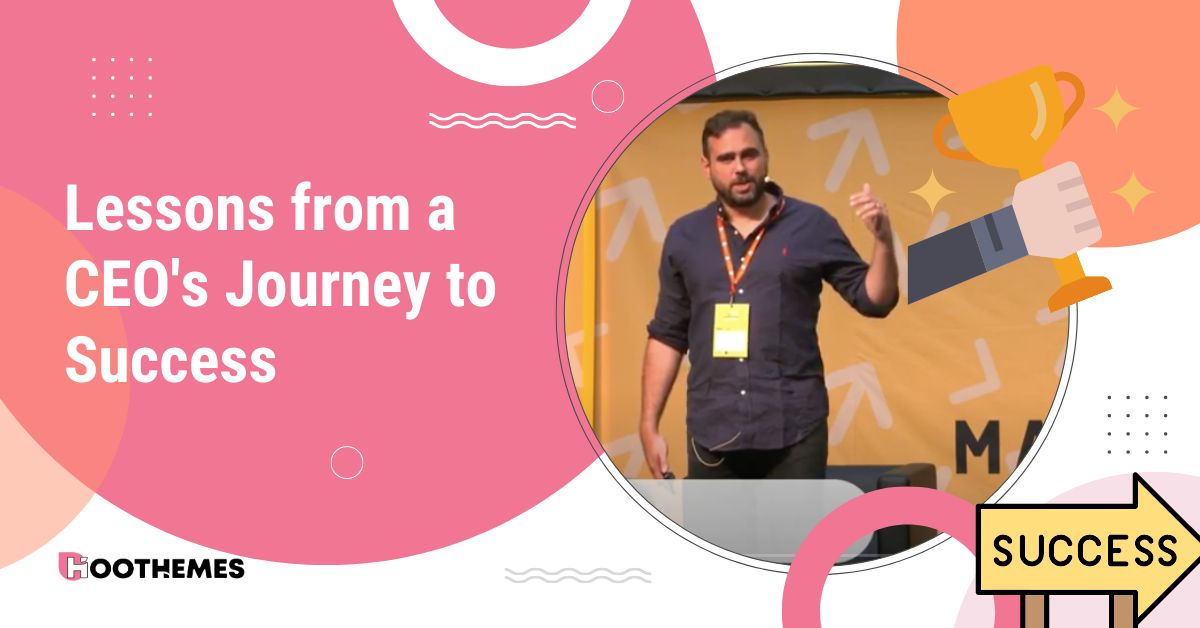Julian Teicke, the CEO of We Fox, a company that sells insurance products through human advisors, shared his insights on hiring, scaling, and management at a recent conference called Marketplace Conference in Berlin in 2022.
He started by discussing the lessons he learned in hiring, emphasizing the importance of taking time when making hiring decisions and trusting his gut. He mentioned that in the past, he had made wrong hiring decisions due to pressure from recruiters or candidates themselves, and emphasized the need to trust his instincts and not rush into decisions. Here are some of the excerpts of his talk that I believe every entrepreneur must read and learn from.
At the beginning of this year, I walked into a board meeting and made a bold proposal. Despite the prevailing trend, I suggested that we raise $500 million out of a $10 billion valuation. My colleagues were skeptical, believing it couldn’t be done. They had raised $600 million at a $3 billion valuation the year before. But Julian was determined to challenge the status quo and push the boundaries of what was possible.
Julian says: “To my surprise, just two weeks later, I had a term sheet for $500 million at a $7 billion valuation. It was February-March, and the market was already showing signs of a downturn. We were ecstatic, but then, two days before the signature, the American crossover pulled the term sheet. Within two weeks, I had to regroup and ultimately raise $400 million at a $4.5 billion valuation. It was still an upround from last year, and looking back, I’m grateful for the outcome. Being overvalued and tied to the previous year’s paradigm can actually be a disadvantage. Now, we are on a much healthier footing for the future”.
In this talk, Julian shared his practical lessons for CEOs in three key areas: hiring, scaling, and management as well as trends in the venture capital market. These lessons are drawn from his experience over the past decade. Hopefully, they will provide insights and inspiration for your own leadership journey.
Hiring: Taking Your Time, Trusting Your Gut, and Ending with Pain
The first lesson in the hiring process is to take your time. In the past, I have often felt pressured to make quick decisions due to external factors such as candidate availability or recruiter recommendations. However, I have learned that rushing into a hiring decision can result in making the wrong choice for a management team member. Just like there are plenty of fish in the sea, there are numerous qualified candidates out there, and it’s important to be patient and thoroughly evaluate each one.
The second lesson is to trust your gut. In the insurance industry, where I operate, many top executives are known for their smooth talking skills and ability to check all the boxes. However, I have learned that despite what may appear on paper, there are times when my instincts tell me that something is off. In the past, I have ignored this gut feeling based on input from team members or the candidate’s qualifications, only to regret it later. Therefore, I have made it a rule to trust my gut when making hiring decisions. If something feels off, I now listen to my instincts and do not proceed.
The third lesson I had to learn the hard way is that sometimes, ending with pain is better than prolonged pain without resolution. As a leader, I tend to develop deep personal relationships with my team members and believe in their unlimited potential. However, I have learned that if a working relationship is not working, it is better to end it rather than trying to make it work indefinitely. While it can be painful, it is ultimately better for both parties to move on and find a better fit elsewhere.
Scaling a Business: Embracing Growth and Nurturing Talent
Scaling a business is a complex process that requires careful planning and execution. From my experience, there are three key lessons to keep in mind:
The first lesson is that early-stage growth is all about embracing growth. When a business is in its early stages, it is essential to focus on growth opportunities and be willing to take calculated risks. This is the time to be bold and seize opportunities that can propel the business forward.
Julian also emphasizes that culture is crucial in scaling a company and that as a CEO, you are responsible for shaping the culture. Culture cannot be delegated and requires constant effort in building relationships and employee recognition. The speaker shares that they personally travel to all locations, meet with random people, and tell the company’s story repeatedly to build culture and connection.
He also highlights the importance of trust in management. He has coaching sessions once a week and once a month, where they assess the level of trust and alignment they have with their direct reports on a scale from 0 to 10. They then work on increasing trust and alignment through one-on-one sessions and deep conversations to understand different perceptions and views on topics. Julian emphasizes that trust is the foundation of any relationship and is crucial for discussing factual things and development.
Personal growth is also highlighted as a constant requirement for CEOs and leaders. The speaker compares a company to a plant that wants to grow into a big tree but is limited by the CEO’s personal limitations, weaknesses, and unconscious biases. He stresses the importance of eliminating unconscious biases and limiting beliefs to allow the company and teams to grow. Julian encourages leaders to go outside of their comfort zones, approach uncomfortable feelings, and tackle difficult topics to understand the reasons behind their insecurities and vulnerabilities. He emphasizes that this process may involve pain, frustration, and depression, but it is necessary for personal growth and ultimately for the growth of the company.
Lastly, the need for leaders to learn to enjoy not being needed. As CEOs or leaders, it is easy to develop an ego and want to be constantly needed for advice. However, compare this to a football coach who needs their team to be able to win without constant intervention. He emphasizes the importance of empowering employees, delegating responsibilities, and allowing them to thrive without constantly relying on the CEO’s guidance.
Recap: The importance of culture, trust, personal growth, and empowerment in scaling a company and being an effective leader were highlighted by Julian. He emphasized the need for continuous effort, self-awareness, and willingness to step out of the comfort zone for personal and organizational growth.
Managing Crisis
Finally he emphasizes the importance of finding someone to take care of oneself during a crisis, and also the need to enjoy not always be needed. He highlights three additional tips for navigating a crisis:
- Build a team that understands each other well and can make quick decisions together, as time is of the essence during a crisis. The speaker reduced their management team to five people to enable faster and more aligned decision-making.
- Ideas alone do not guarantee success. The resilience and determination of the CEO and their ability to pivot and adapt to changing market conditions are critical. Giving up is the only reason companies fail, and crises can be an opportunity to pivot and find new paths to success.
- Focus on building a good, sustainable business instead of chasing hype or unsustainable growth. Avoid burning excessive amounts of capital without a plan for profitability. The speaker advocates for building businesses that make money and are financially healthy.
Julian also mentions that despite the current challenges, there is still ample investment capital available for good businesses that are focused on profitability and sustainability. The key to good fundraising is to stay resilient, adaptable, and focused on building a solid foundation for long-term success.






